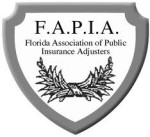Recorded Statements - Is going on record just a casual conversation?
In our recent blog posting we addressed the topic of recorded statements. This is typically when the insurance company's adjuster is requesting to record a conversation in effort to catch the insured in a statement that might be helpful to the insurance company.
As a general rule, it's best not to agree to a recorded statement. But, an even better rule is to speak with a professional to guide you through these types of issues.
Here's an excerpt from a previous posting:
The Internet is an amazing resource when it comes to understanding your Insurance rights, claims, and coverage. It’s best to do your research with the option of verifying your conclusions with a professional. There’s so much online that a user must be careful what is relied upon, especially when in the middle of a claim. A hot topic for discussion is when adjusters for an insurance company push for recorded statements. This issue often puts policyholders on alert and they do research on this matter.
A recent Google search produced an quick article on Squidoo about “recorded statements” and insurance claims and adjusters. Here’s a quick glimpse of that article, it’s worth reading in full.
Adjusters take recorded statements in person so that they can visually evaluate you. They might conclude that you’re not telling the truth. They also take statements by phone simply for their own convenience. I’ve even seen adjusters call policyholders at odd hours, just to catch you off-guard, hoping you’ll make some error in your statement that he can use against you. And, make no mistake. They will use your recorded statement against you if possible.
Read the full article: Recorded statement for insurance purposes







